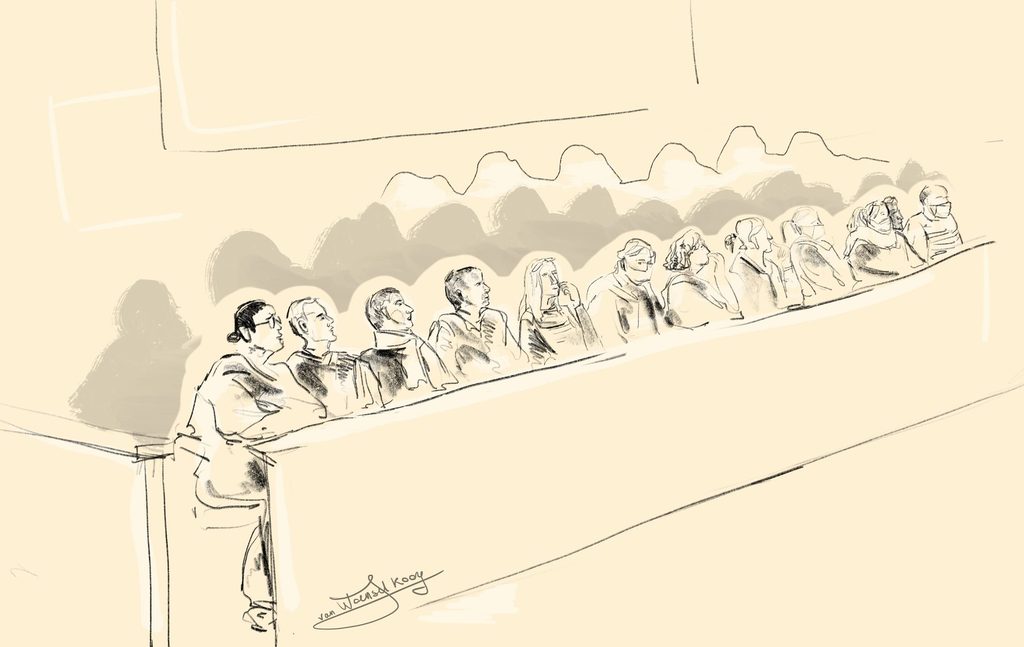After 19 days of deliberations (the longest deliberation ever at an Assize trial in Belgium), the jury will publicly announce its verdict at the trial on the March 2016 Brussels terror attacks at 16:30 on Tuesday.
In early July, the jury was given a volume of 388 pages with 287 questions. Not every question necessarily had to be answered as a number of them were subsidiary, and only had to be answered if the response to the previous main question was "yes".
The most important question is whether the accused were guilty of the terrorist murder of the 32 victims: that question applies for nine of the ten accused. For the hundreds of people that were injured in the attacks in the Brussels Airport departure hall and on the Brussels metro, the jury also had to consider whether it counts as attempted terrorist murder.
Additionally, four people died in the years following the attacks, including Shanti Decorte (23), who was euthanised last year for unbearable psychological suffering after experiencing the Zaventem bombing. As the prosecution believes their deaths were the result of the attacks, the jury must answer whether they, too, were victims of terrorist murder.
Secret votes
Thursday 6 July marked the last day of the trial, seven months after it started. The jurors were transported from the Justitia building (where the trial took place) to a secret location where the 12 effective jurors and the judges deliberated on the questions of guilt.
During the deliberations, the jurors and the court had to be cut off from the outside world to avoid influence: they were not allowed any contact with relatives, and phones, internet and televisions were banned.
The deliberations were not allowed to be interrupted: the jury members could only leave when all questions of guilt had been answered with adequate motivation. Such a deliberation is not as easy as simply answering with a "yes" or "no", as discussions can take place among themselves, jurors could also ask technical-legal questions to the magistrates of the court or review certain documents from the file.
Related News
- Brussels attacks trial: Defendant's lawyers tell jury to 'declare him guilty on all counts'
- How the bombs changed Brussels, and how the city is still coming to terms with them
- How Belgium moved on from the bombings
The final vote is secret, so none of the jury members know what the others have voted for. This is done very traditionally, on a note. It reads: "In good conscience, my answer to the question is yes/no."
Those notes are collected and counted by the chair. In case of a result of seven to five on a certain question, the three professional judges will also cast their vote. If the result is six to six, the accused will be acquitted on grounds of doubt.
Does this mean the trial is over now?
More than seven months after the "trial of the century" began, the answers to the questions of guilt will be made public from 16:30. This will take some time, because the answers to the 287 questions will be read out one by one.
This means that the end is in sight, although we are not there yet as the actual verdict and pleas about the sentences for those who were found guilty will not follow until early September. The jurors and the professional judges will then deliberate again to decide on their sentence.

